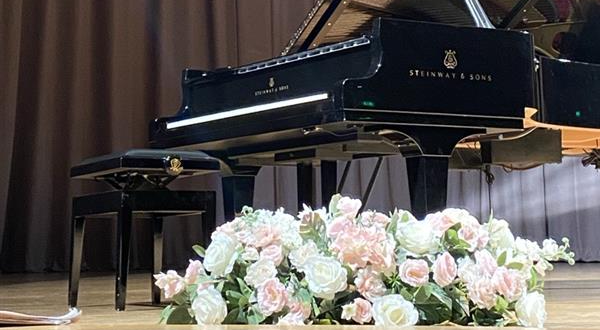Do International Medical Students Lower the Quality of State-Financed Medical Studies?
Recently, opinions have been voiced that international students in the Medicine and Dentistry study programmes significantly lower the quality of studies and that the number of international students should therefore be limited. This opinion also appears in a proposal by the Ministry of Health and the Ministry of Education and Science for amendments to the Law on Higher Education Institutions, which recommends restricting the number of international students admitted to medical study programmes.
There is no evidence for the claim that an intensive flow of healthcare students would exhaust the capacity of large hospitals in Riga. This might have been a problem five or six years ago, but the system has changed significantly in recent years. There has been a decentralisation of clinical study processes away from large hospitals towards regional hospitals open to constructive cooperation, private medical institutions and clinics abroad. Latvia's greatest asset is human intelligence. In total, Rīga Stradiņš University (RSU) has concluded contracts with 235 healthcare institutions at which students can acquire practical skills. If we were to depreciate higher education export, we would also depreciate Latvia's international reputation, hundreds of jobs and valuable contribution to Latvia's gross domestic product (GDP). This is particularly important under the current circumstances and considering the economic problems that have been caused by the COVID-19 pandemic.
Public calls by politicians to limit the number of international students admitted to universities contradicts the autonomy of higher education institutions and Latvia's national development plans, which envisage increasing export. The Nākotnes prasmes nākotnes sabiedrībai (Future skills for future society) section in the new education development guidelines for 2021-2027 states that offering study programmes in EU languages is a prerequisite for the successful internationalisation of education. This will further attract international students, lecturers and researchers.
Attracting international students to RSU is the result of 25 years of hard work. This work has resulted in being awarded the export award Latvji, brauciet jūriņā! by the Latvian Chamber of Commerce and Industry, the Eksporta čempions award by the Investment and Development Agency of Latvia and the Ministry of Economics, as well as an award from the Latvian exporters association The Red Jackets.
RSU has succeeded in attracting international students from Germany (45% of the total number of international students at RSU), Scandinavia (40%), Italy, France, Israel, USA, Canada, etc. The number of international students interested in studying at RSU is four times larger than the university’s capacities. Only the best students are admitted, which corroborates the quality of education at RSU and its international reputation in medical education in Europe and worldwide. The proportion of students who are third-country nationals has fallen to 10%.
Attracting international students is an extremely important step in economic development. A study by the think tank Certus on RSU’s contribution to higher education export and economic development concluded that RSU will generate a direct contribution of 49.6m euros to the Latvian economy in 2020 and an indirect contribution of 46.6m euros to GDP, which will increase Latvia's GDP by 96.2m euros. The think tank concluded that between 2021 and 2024, the Latvian economy will receive an additional 438m euros due to the export of RSU higher education services.
International students are essential to universities’ development as state funding is still insufficient. Thanks to the funding from international students, RSU has developed modern medical and dental education simulation centres, improved the quality of study programmes, improved lecturers’ English language skills, renovated and developed study infrastructure, increased wages. RSU has also been able to attract international guest lecturers and pay them salaries that are competitive in Europe: the proportion of international guest lecturers now accounts for about 20% of the total number of lecturers at the university. RSU has also set up several centres for clinical studies abroad – four in Germany, one in Italy and one in Israel. There are plans to open one in Scandinavia in the future as well. This enables international students to undergo clinical training in their home countries. Moreover, RSU is able to provide practical training with international partners during COVID- 19 and more than 150 students have undergone placements at hospitals abroad. Moreover, 15–20% of international students from RSU continue their studies at universities in their home countries after completing theoretical courses.
It should also be noted that internationalisation and universities’ reputation is an important criterion in international university rankings. The broader a university’s international cooperation network is, and the more study programmes are offered in English, the higher they rate in prestigious rankings.
It is currently not clear why international student admissions to the Medicine and Dentistry study programmes is being restricted. This will undermine the Latvian economy and limit universities’ ability to advance in international university rankings.





